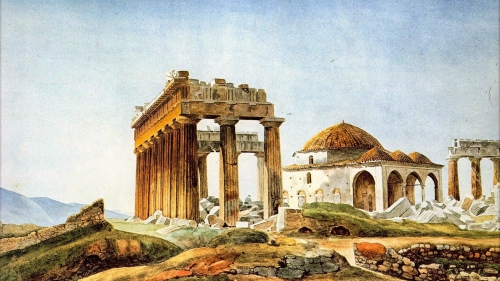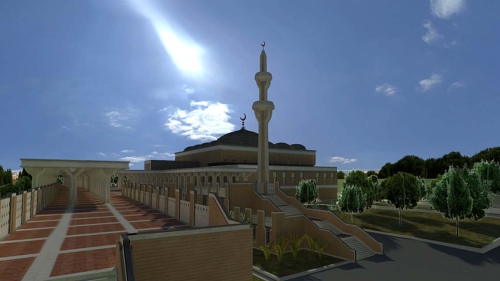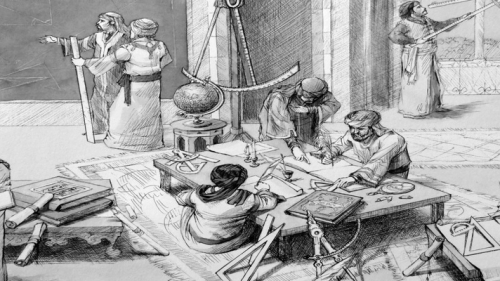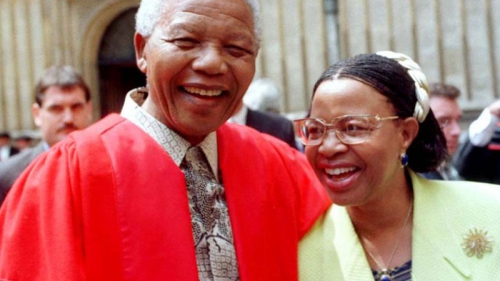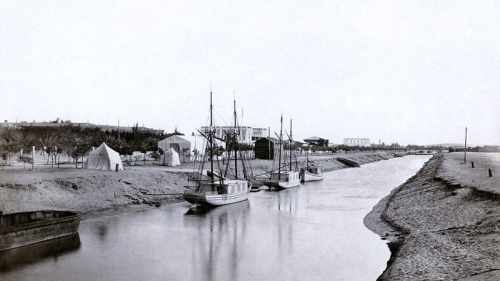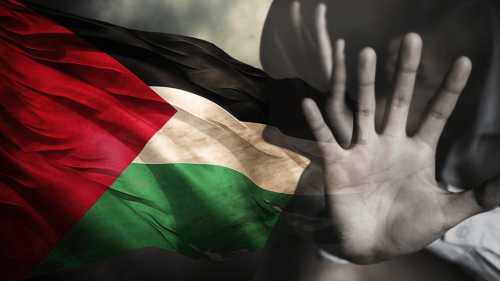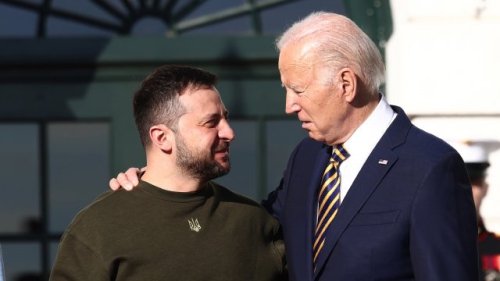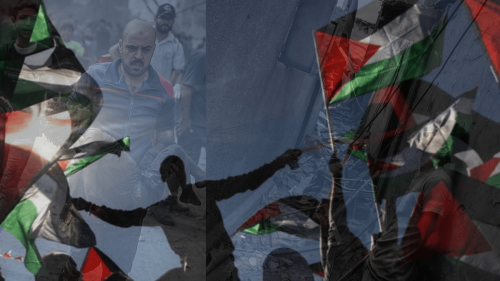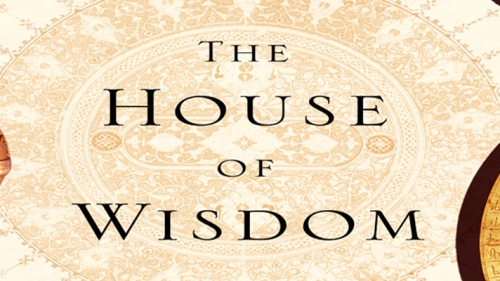Is There An Islamic Problem?

It has become fashionable in some circles after September 11 to excoriate Islam as the source of the problems facing the Islamic world. The air is thick with theories which claim that Islam has been paralyzed by a deadening obscurantism since the twelfth century, and this paralysis will only end when Muslims decide to replace Islam with secular humanism. It is time these theories were deconstructed.
A Matter of Timing
I will turn directly to the thesis of the early demise of Islamic civilization: since the castigation of Islam often hinges on how and when this happened.
First, and this is very important, this thesis is quite wrong about the timing of the decline. It claims that Islam lost its creative power in the twelfth century as a result of the twin blows dealt by orthodox 'Ulama--the religious scholars of Islam--and the Mongols. These ideas have an Orientalist odor.
This canard was first challenged by Marshall Hodgson in The Venture of Islam (1974). He believes that the brilliant works, in architecture, philosophy, and the visual arts, created during the sixteenth century--in Isphahan, Istanbul, Delhi and Agra--were not inferior to the masterpieces of the Italian Renaissance.
The scientific work did not face sudden death either. In fact, George Saliba, in A History of Arabic Astronomy, extends Islam's golden age to the fifteenth century. After the Mongols are supposed to have devastated Eastern Islam, major observatories were being set up as late as the fifteenth century. The astronomical tables computed at these observatories, together with the work of Ibn-Shatir (d. 1375), a time-keeper in the central mosque of Damascus, were passed on to Europe, and are believed to have contributed to the Copernican revolution.
Did Islam Stumble?
If Islam did not suffer a decline in the twelfth century, when did this happen? The beginnings of this process, as well as its sources, must be sought not so much in Islam as in Europe. It wasn't Islam that stumbled. Rather, it was Europe that gathered speed and moved ahead, in gunnery and shipping, starting in the sixteenth century.
Europe employed its maritime strength to plunder the gold and silver of the Americas, create an Atlantic economy, and dominate the commerce of the Indian Ocean. This deepened Europe's commercial and financial capital, while squeezing the trading profits of the major Islamic empires as well as the smaller trading states in the Indian Ocean. Over time, Europe's military advantage became decisive. And by the beginning of the nineteenth century-in India even before that-Europe started its project of dismantling the Islamic polities in the Mediterranean and the Indian Ocean.
Why couldn't Islamic--or other--polities resist this growing European thrust? The Eurocentric narratives would have us believe that this was fait accompli: the simple working out of Europe's racial, geographic, climatic, and cultural advantages over others. Asia and Africa could have done little to resist.
A historical narrative tells a different story. Their colonization of the Americas, their growing control over the trade of the Indian Ocean, their mercantilist rivalries and incessant wars--all rooted in the anarchy of nation states--accelerated the dynamic of historical change in Europe, allowing it to outpace the more centralized, mostly land-based empires in Asia and Africa. Europe's advantages were historical--and, in part, accidental.
Thwarted Recovery
This takes us to the troubling question of Islam's failure--unlike India and China--to mount an adequate recovery from the losses of the colonial epoch.
Why has Islam, which commanded several power centers before the rise of Europe, failed to reconstitute its lost power in the post-colonial period? Once again, those who attribute this failure to Islam are inverting the order of causation.
As recently as 1750, Islamic polities stretched from Mauritania and the Balkans in the West to Sinjiang and Mindanao in the East. But this power lacked an adequate social base. In 1800 the Arab population in the Middle East was quite thin. Elsewhere, in the Balkans and India, the Islamic empires ruled over mostly non-Muslim populations. The early collapse of Muslim power in India and the downsizing of the Ottomans in Europe had much to do with these demographic drawbacks.
The Ottomans, the Maghreb and Egypt faced another handicap: they were only a few day's sail from Europe. This made them tempting targets for European capital and cupidity, mixed with some of the old zeal for eradicating Islam. This mission was taken up successively by France, Britain and Italy. An early and determined Egyptian effort to industrialize-initiated in 1810-was dismantled by the British and French in 1840. When the Egyptians mobilized again in the 1870s, it led to their colonization in 1882. Britain, France and Israel mounted another invasion of Egypt as recently as 1956.
This suggests some sobering reflections for those who would blame the present troubles on Islam's antipathy to modernity. Imagine if the Egyptian bid to industrialize had not been dismantled by imperialist Britain and France; it is then likely that an industrialized Egypt would eventually have led the entire region to industrial growth, prosperity and power. This thought experiment explains why Egypt's industrial drive had to be aborted. An industrialized Middle East may have renewed the old threat of Islam to Europe.
The disarray of the Arabs in the post-colonial period goes back to two additional factors: the Zionism and oil. The Zionist movement was founded on a confluence of Jewish and Western interests in the Middle East. In time, this led in 1917 to Britain's support for the creation of a Jewish state in Palestine, the dismantling of the Ottoman empire in 1919, the vivisection of the former Ottoman territories in the Levant, the British mandate over Palestine, and the creation of Israel in 1948. The Islamic Crescent had been splintered, and part of it occupied by a Jewish colonial-settler state.
In the meanwhile, United States and Britain were making arrangements in the Persian Gulf to ensure Western control over the richest oil reserves in the world. They decided to place the region under archaic, absolutist monarchies whose survival, against the rising tide of nationalism, would depend on United States. As part of this plan, when the Iranians overthrew the monarchy in 1953, United States and Britain instigated a coup to re-instated it. In 1967, with the decisive defeat of Egypt, Syria and Jordan--leading to the occupation of Sinai, the Golan Heights, the West Bank and Gaza--Israel cut short the career of secular Arab nationalism. The Middle East straightjacket was now securely in place.
The Iranian revolution of 1979 did not loosen the straightjacket. On the contrary, by raising the specter of Islamist power, this revolution paved the way for an 'Arab' war against Iran, with the blessings of United States. In time, after the collapse of Soviet Union, this led the corrupt Arab regimes to form a grand alliance--under the aegis of United States and Israel--to control and repress their Islamist movements. When foolhardy Iraq dared to challenge this grand alliance, it was bombed back to the stone age and crippled with comprehensive economic sanctions.
A new 'cold war' had descended on the Islamic world in the 1990s. Its rules were clear. The United States would support the Islamic despots--of whatever stripe--so long as they kept the lid on political Islam. If any country dared to depart from the terms of this contract, it faced economic and military sanctions; and, if these did not work, they would be followed by swift and devastating reprisals. Iraq showed to the Islamic world the price it would pay for challenging this new contract. Similarly, Algeria stands as an example of what happens when the democratic process threatens to empower Islamists.
An explanation of why the 'democratization' of the 1990s bypassed the Islamic world might be found in this new cold war. Most Western commentators think otherwise: they choose to blame Islam. Their method is classic--damnation by accusation. If Islam is obscurantist, anti-rationalist, fanatical, and misogynist, then, it must also be opposed to democracy. The Orientalist has spoken: the case is closed.
Those who believe that Islam is anti-democratic need a short lesson in the modern history of constitutional movements in Islam. Muhammad Ali of Egypt appointed his first advisory council in 1824, consisting mostly of elected members. In 1881, the Egyptian nationalist movement succeeded in convening an elected parliament, but this was aborted only a year later by British occupation. Tunisia had promulgated a constitution in 1860, setting up a Supreme Council purporting to limit the powers of the monarchy. But this was suspended in 1864 when the French discovered that it interfered with their ambitions. Turkey elected its first parliament in 1877, though it was dissolved a year later by the Caliph; a second parliament was convened in 1908. Iran's progress was more dramatic. It started with protests against a British tobacco monopoly in the 1890s, and quickly led to an elected parliament in 1906, with powers to confirm the cabinet. A year later, however, the British and Russians carved up Iran into their spheres of influence, a development that would lead to the dissolution of the parliament in 1910. Nevertheless, the constitutional movement persisted until it was suppressed in 1931 by a new dynasty brought to power by the British.
Compare these developments with the history of constitutional movements elsewhere, not excluding Europe, during the nineteenth century--and the world of Islam does not suffer from the comparison. Incredible as this appears to minds blinded by Eurocentric prejudice, Tunisia, Egypt and Iran were taking the lead in making the transition to constitutional monarchies. The 'resistance to democracy' in the Arab world even today does not come from their population. Quite the opposite. It comes from neo-colonial surrogates--brutal military dictatorships, and absolutist monarchies--imposed by a United States determined to safeguard oil and Israel.
A New Colonial Contract
The US-imposed straightjacket has deepened the contradictions of global capitalism in the Islamic world: a development that is pregnant with consequences which threaten to spin out of control.
During the Cold War, the elite factions in many Third World countries--especially their military elites--competed to win the US contract for repressing their populist movements. As long as they did their job, they enjoyed a degree of autonomy in managing their economies. A few of them in East Asia, the most favored ones, became showcases of capitalist success. When Soviet Union collapsed in 1990, this contract was terminated. It was replaced by the Washington Consensus, enforced by the International Monetary Fund, World Bank and World Trade Organization. The elites in the periphery would now compete to open up their economies for takeover by multinational corporations.
There are two versions of this new colonial contract. Countries in the non-Islamic periphery are generally encouraged to compete for the contract through the ballot box. In countries that have strong Islamist movements, this option is not available; they are allowed to keep their dictators and monarchs. The excuse for this two-track policy is flimsy. It is charged that the Islamist parties oppose democracy: that they will use the ballot to shut down the ballot. The real reason is Western nervousness over the Islamist's twin goals: introducing an Islamic social order, and reversing the fragmentation of Islam.
This siege of the Islamic world is unlikely to produce the desired results. On the contrary, it has engendered contradictions that will only deepen over time. After the rout of the Arab armies in 1967, the failure of secular, nationalist movements to reverse Arab marginalization was becoming transparent. In 1973, with appropriate offers of American 'aid', Egypt made a separate peace with Israel. In abdicating its leadership of the Arab world, Egypt wrote the obituary of Arab nationalism. From now on, the historic task of liberating the Arab world would be assumed by the Islamists.
Although defeated, the corrupt Arab regimes remained ensconced in power. They owe their survival to the new colonial contract which allowed them to keep their repressive apparatus if they used it to wage war against their own people. The turn around was quick, moving through capitulations at Camp David and Oslo, normalization of ties with Israel, and capitulation to the Washington Consensus. The war against Islam intensified. The Islamist parties were banned, rooted out of professional associations and trade unions, and eventually their leaders were jailed, executed, or hounded out of the country.
This repression of Islamists has produced two results. Nearly everywhere, it immobilized mainstream Islamists who wished to work through the institutions of civil society: through political parties, professional associations, the media, the courts, and charities. The focus now shifted to the extremists willing to engage in violent action to gain their ends. But the extremists too had little crawl space under the repressive Arab regimes. Those who survived were driven underground, or went into exile in Afghanistan, Pakistan, or the Western countries.
At this point, some of them decided to change their strategy. They would target their problems at its source--and inflict damage on United States. They wanted to sting the United States into lifting its siege of Islamic countries. Alternatively, they hoped to start wars--like the one in Afghanistan--on the chance that this would spark rebellions against the American surrogates in the Islamic world.
Giving Up 'False Notions'?
Of late, sagely voices--outside and inside Islam--have been counseling Muslims to give up the 'false notions' of Islam. I hope to have shown that the false notions we need to give up are the Orientalist narratives--of an Islam that has been (mis)represented as irrational, misogynist, fatalist and fanatical.
Rational thinking did not begin with the Enlightenment. In fact, several Enlightenment thinkers turned to Islam to advance their own struggle against medieval obscurantism and the intolerance of an organized clergy. It is time for alienated Muslim intellectuals to tear the Orientalist veil that obscures the face of Islam, re-enter the historical currents they have abandoned, create a deeper understanding of the dynamics of derailed Islamic societies, and lead them into an Islamic vision of a world where all communities participate in a race to create works of excellence.
The West too must give up its false notions of Islam as the irreconcilable 'Other', that must forever be battled and besieged. If Islam is a greater threat to the West than India or China, that is because our actions--in large part--have succeeded in preventing it from reconstituting its center, its wholeness and history. More than a fifth of the world's population seek their place in the world within a stream of history that flows from the Qur'an. They want to live by ethical ideals that in the past have produced nobility, magnanimity, sobriety, tolerance, science, mathematics, philosophy, architecture and poetry. Islam may do so again if only we lift the siege--and allow the light, freshness and sweetness at its core to find expression again in a contest of creative minds and soulful hearts, intertwined with reason and mercy.






